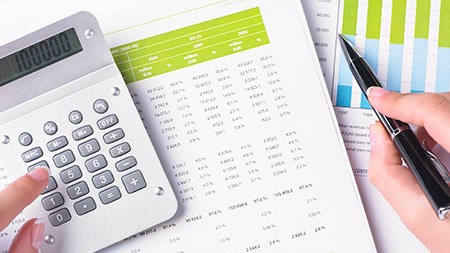There have been a plethora of reports telling South Africans that they are in for a rough ride this year. It's beginning to sound like a broken record, but if truth be told, the reports have done us a massive favour. They are preparing us for the worst, making us aware of just what could happen over the next couple of years.
People may not be panicking just yet, but many are getting their financial affairs in order, battening down the hatches so to speak and ridding themselves of unnecessary debt.
Humans basically have three basic needs: water, food and shelter. Unfortunately, at least two of these commodities are under threat thanks to one of the worst droughts in living memory. Water is scarce and many crops have failed. We live in a global economy so fortunately we can import food, but unfortunately the rand isn’t playing ball at the moment and it’s going to cost a great deal of money just to buy basic foodstuffs with which to fill supermarket shelves. We've all noticed the huge jump in the price of vegetables (posts on a social media page reveal that shops are charging as much as R70 for two avocados), and in April 2015 it was reported that the price of maize meal had increased by 29 percent in roughly six months. By August last year, Grain SA was reporting that the price had increased by between 50 percent and 75 percent.
A rise in food prices affects us all and although some will undoubtedly fare better than others, we are all going to take a knock. To use a very old line, South Africans are not renowned for their ability to save and unfortunately generally have very little financial leeway when times get tough. To make matters worse, it's pretty evident that interest rates are going to go up in the near future and this could be a death knell for those who are already struggling to keep up with bond repayments.
So what should you do if you simply can't find the money to service your bond?
Firstly, don't ignore the problem and don't skip payments with the idea that you’ll settle with the bank in a couple of months when you get back on your feet. Don't fool yourself, there's always going to be another expense barrelling down the pass. Contact the bank and discuss the problem with them. Although conspiracy theorists may disagree, the bank doesn't want to repossess your home and will do everything in its power to ensure that you remain a paying client.
If the worst comes to the worst and you have to sell the property, price it realistically and in line with other properties in the area. People often try and sell their homes for more than they are worth with the idea of settling all their outstanding debt. Buyers however don't overpay for property in a flourishing market and are certainly not going to pay more when the economy is struggling.
Remember, you're going to be sitting with a bigger problem if the property doesn't sell. You’ll still be liable for bond repayments and rates and taxes and may well find yourself deeper in trouble, even if the home does eventually sell for a higher price after being on the market for a year or more.
Selling a home in order to get out of debt should always be a last resort and those who find themselves financially constrained should consider the following:
• Draw up a budget and stick to it.
• Consider downscaling your expenses. For example, trading in your car and going for a cheaper model.
• Buy your groceries once a month and resist popping out to the shops on a daily basis.
• Look at ways of saving electricity. Fit a timer to your geyser and switch off all unnecessary appliances.
• Pay off and close any unnecessary accounts. This includes clothing accounts and the like.
• Form a lift club and share the costs of travel with friends and colleagues.
• Eat out less – regard going to a restaurant as a treat and only go out on special occasions.
• Shop around for insurance cover and change companies if your current insurer refuses to lower the premium in line with other insurance companies’ rates
If it's any consolation, South Africa made it through the last recession. It wasn't pretty and times were extremely tough, but we got through it. Selling a home you can no longer afford is not the end of the world, it simply means that you are going to either downgrade to something a bit more affordable or are going to have to rent a property until you get back on your feet.



